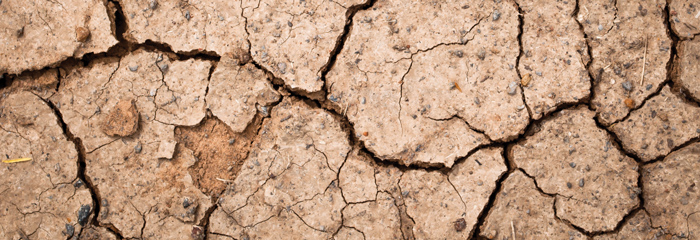The Grain SA Research and Policy Centre team manages and coordinates research efforts in a consortium-based approach. The three main research consortia are crop improvement, plant health and climate resilience and were established to address the needs of industry and government.
Further initiatives the team is involved with include food and nutrition security and farmer development innovation support, cultivar evaluations as well as human capital development. This article will provide a short overview of the climate resilience consortium and highlight its key initiatives.
The climate resilience consortium was established with the aim of investigating the impact of climate change and variability on agricultural production and building resilience to ensure food and nutrition security for the future.
What does climate change mean for producers?
Global climate predictions suggest that temperatures will increase, rainfall patterns will become more variable, more extreme weather events will occur and atmospheric carbon dioxide (CO2) levels will continue to rise. These are some of the prominent aspects that will affect both the quantity and quality of crop production in the future. Producers are currently facing these challenges and they are predicted to increase in frequency and intensity.
Building a knowledge base
The devastating effects of climate change on food security in South Africa mean that tackling climate change in agriculture is a high priority shared by government and industry. Grain SA identified key objectives to address certain challenges posed by climate change. The first is focussed on building a knowledge base of the effect of climate change in agriculture. It is well known that climate change will greatly disrupt national food security, but how this will affect production is largely unknown. Through this objective, a greater knowledge base will be developed by investigating specific effects of climate change and variability in a local context and how producers engage with these challenges.
The impact of elevated CO2 on production
Carbon dioxide is increasing in our atmosphere, and it is unclear how crops will respond to these higher levels. Therefore, the consortium assessed how local maize cultivars would respond to elevated CO2 (eCO2) levels. Experiments from preliminary studies led by Rhodes University (RU) showed that when maize is subjected to eCO2, the increased CO2 levels can mitigate the effects of drought, with potential differences between cultivars. Physiological mechanisms that underpin the eCO2 effect are the maintenance of plant water status and how the plant regulates the opening and closing of stomata in leaves.
Effects of late planting dates on maize development
The consortium is currently investigating the effects of late planting dates (shifting rainfall patterns) on physiological development and yield in maize in South Africa in a project executed by the University of the Free State (UFS), the University of Pretoria (UP) and the Agricultural Research Council (ARC). The project seeks to determine whether the onset of rain in maize production regions in South Africa is in fact shifting later and whether this trend correlates with later planting dates.
Parallel with this, field trials have been set up to investigate the effect of this phenomenon on maize production. Field trials have been set up on three experimental sites in Potchefstroom, Bethlehem and Bloemfontein, with the project extended to two on-farm sites in Coligny and Mthatha respectively. Preliminary results provide evidence that late maize planting dates significantly affect plant growth and development. Late planting dates also affected yield for all cultivars tested and the latest planting dates produced a significantly lower yield.
This is the second season of this project and as trials are harvested and data analysis commences, an interesting comparison between the 2020/2021 production season and the 2019/2020 season is anticipated, given the very different climatic conditions experienced this season.
Initial steps towards resilience
The second key objective is to build resilience in agricultural systems. With the objective to develop climate change response plans, a major focus is to investigate production practices that could be used to help build resilient production systems.
Building resilient production systems
The consortium is addressing climate variability by looking at how to build production systems in the long term that are more resilient to climate variability within or between seasons through different crop rotation systems and production practices.
A new project was established this past season (2020/2021) at the UFS. This initiative aims to investigate crop response to different crop rotations and tillage practices with and without a cover crop in a low-rainfall, high-risk region. Special focus is placed on evaluating soil water content, biological, physical and chemical responses as well as the economic viability of sustainable cropping systems.
Concluding remarks
Ensuring resilient agricultural production systems for future food and nutrition security requires a strong understanding of how climate change will impact farming. It is critical that concrete steps are taken to understand the impact of climate change on agricultural production, particularly as it affects staple food production in South Africa. This knowledge base can be used to determine response plans to make production systems more resilient to expected future climate impacts.
The threat of climate change on national and regional food and nutrition security can only be buffered with strong scientific research into building resilience in agricultural production.
Funding partners
- The Department of Science and Innovation (DSI) and the Technology Innovation Agency (TIA)
- The Maize Trust
Research partners
- RU
- UFS
- UP
- ARC-Grain Crops
- Stellenbosch University (SU)
- University of the Western Cape (UWC)
- Syngenta




















